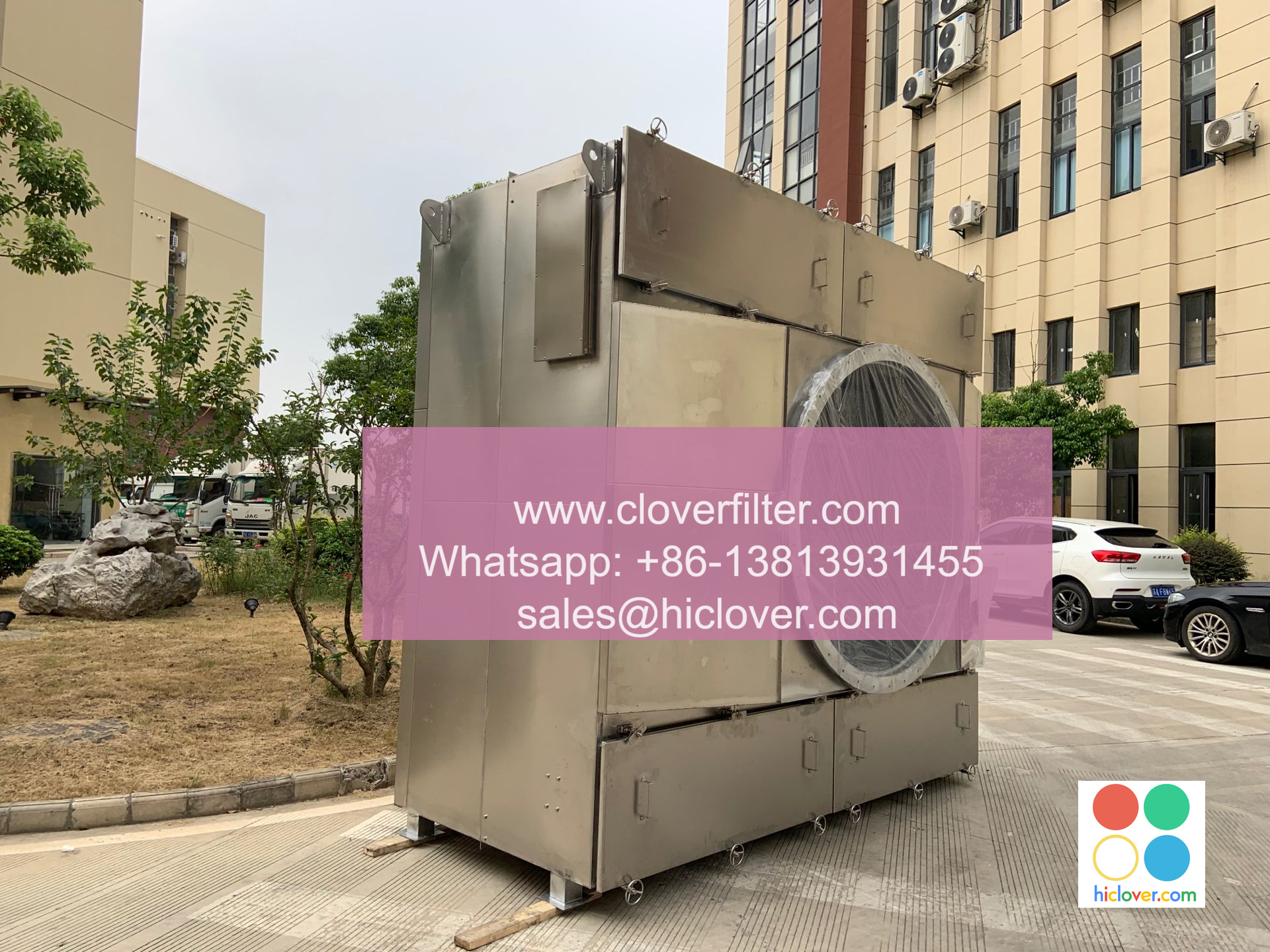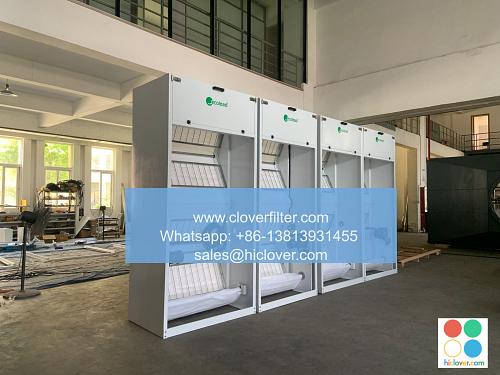A New Era in Steel Manufacturing: Automatic Roll Air Filters and Their Applications

The steel manufacturing industry has undergone significant transformations in recent years, driven by advances in technology and the need for more efficient and sustainable production processes. One of the key innovations that has revolutionized the sector is the introduction of automatic roll air filters. These cutting-edge systems have been designed to optimize air quality and reduce maintenance costs, making them an essential component in modern steel manufacturing facilities.
Automatic roll air filters work by using a continuous roll of filter media that is automatically advanced as it becomes dirty, ensuring a consistent and high level of air filtration. This approach eliminates the need for manual filter replacement, which can be a time-consuming and labor-intensive process. The automated system also enables real-time monitoring of air quality, allowing for prompt adjustments to be made as needed. This not only improves the overall efficiency of the steel manufacturing process but also enhances the quality of the final product.
The applications of automatic roll air filters in steel manufacturing are diverse and widespread. One of the primary uses is in the filtration of dust and fumes emitted during the production process. Steel manufacturing involves various stages, including melting, casting, and rolling, each of which generates significant amounts of airborne pollutants. Automatic roll air filters are capable of capturing these pollutants, including fine particulates, smoke, and gases, thereby protecting both the environment and the health of workers.
Another critical application of automatic roll air filters is in the protection of equipment and machinery. The steel manufacturing process involves the use of sophisticated and expensive equipment, which can be damaged by dust and other airborne contaminants. By maintaining high-quality air, automatic roll air filters help prevent machinery downtime and extend the lifespan of equipment, leading to significant cost savings and increased productivity.
In addition to their technical benefits, automatic roll air filters also offer environmental advantages. By reducing emissions and minimizing waste, these systems contribute to a more sustainable steel manufacturing process. This is particularly important given the industry’s significant environmental footprint, with steel production being one of the largest contributors to greenhouse gas emissions globally. The adoption of automatic roll air filters is, therefore, a crucial step towards reducing the sector’s environmental impact and achieving more sustainable production practices.
The integration of automatic roll air filters into steel manufacturing facilities also requires careful consideration of several factors, including the type of filter media used, the air flow rates, and the maintenance requirements of the system. The selection of the appropriate filter media, for instance, depends on the specific application and the types of pollutants that need to be captured. Similarly, the air flow rates must be carefully calibrated to ensure optimal filtration efficiency without compromising the overall production process.
Despite the numerous benefits offered by automatic roll air filters, there are also challenges associated with their implementation. One of the main obstacles is the initial investment cost, which can be prohibitively expensive for some manufacturers. Additionally, the installation and commissioning of these systems require specialized expertise, which may not be readily available in all regions. However, given the long-term advantages in terms of reduced maintenance costs, improved productivity, and enhanced environmental sustainability, the adoption of automatic roll air filters is likely to become increasingly widespread within the steel manufacturing industry.
In conclusion, automatic roll air filters represent a significant advancement in steel manufacturing technology, offering improved air quality, reduced maintenance costs, and enhanced environmental sustainability. Their diverse applications, ranging from the filtration of dust and fumes to the protection of equipment and machinery, make them an indispensable component in modern steel production facilities. As the industry continues to evolve and embrace more sustainable practices, the role of automatic roll air filters is likely to become even more critical, driving innovations and efficiencies that will shape the future of steel manufacturing.
FAQs
- What are automatic roll air filters, and how do they work? Automatic roll air filters are systems designed to optimize air quality by using a continuous roll of filter media that is automatically advanced as it becomes dirty, ensuring consistent and high-level air filtration.
- What are the primary applications of automatic roll air filters in steel manufacturing? The primary applications include the filtration of dust and fumes, protection of equipment and machinery, and contribution to a more sustainable production process by reducing emissions and minimizing waste.
- What factors need to be considered when integrating automatic roll air filters into steel manufacturing facilities? Factors include the type of filter media used, air flow rates, and maintenance requirements of the system, which must be carefully selected and calibrated to ensure optimal filtration efficiency without compromising the production process.
- What are the challenges associated with the implementation of automatic roll air filters? Challenges include the initial investment cost, the need for specialized expertise for installation and commissioning, and potential operational complexities that require careful management.
- How will automatic roll air filters impact the future of steel manufacturing? Automatic roll air filters are expected to play a critical role in driving innovations and efficiencies, contributing to more sustainable production practices, and enhancing the overall quality and competitiveness of steel products.

